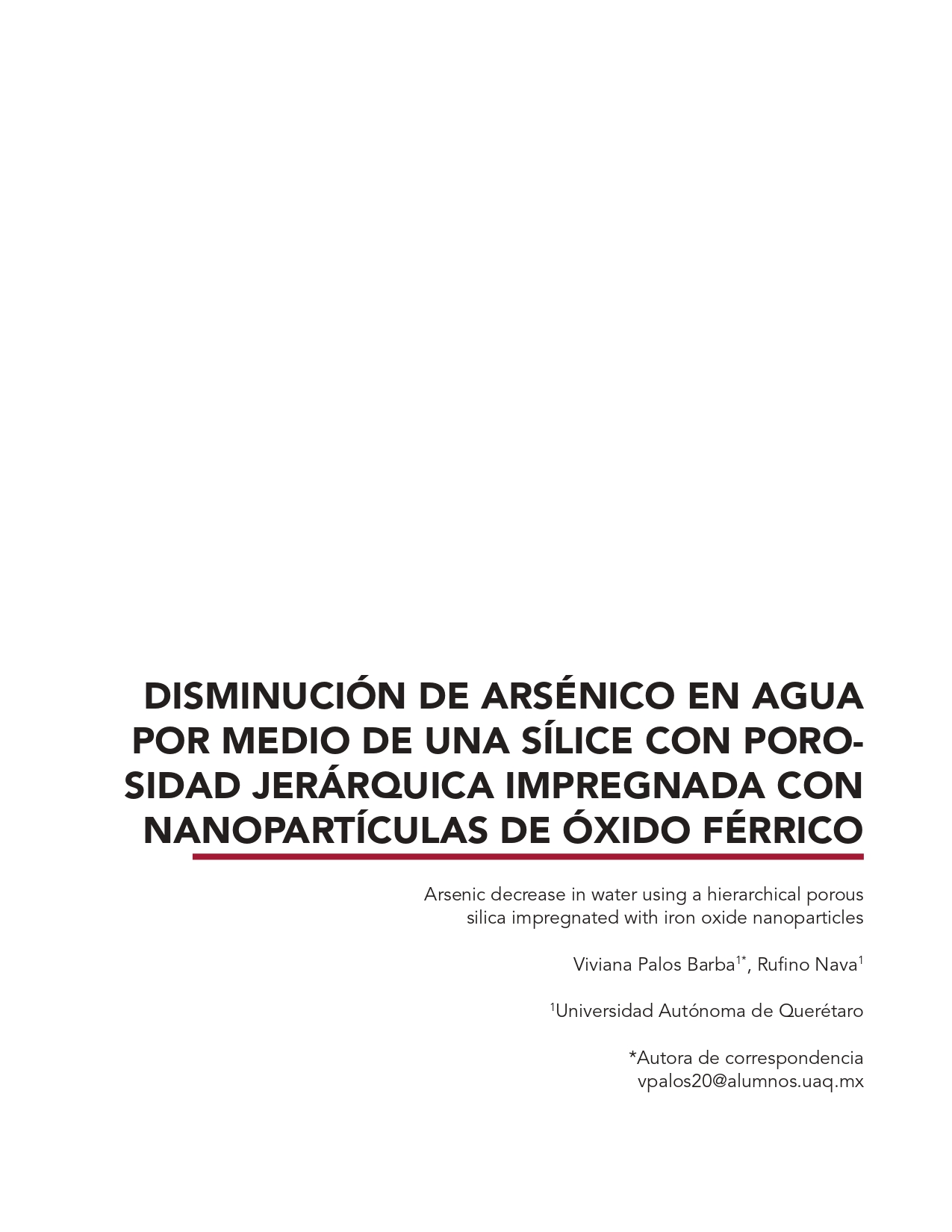Abstract
The influence of the impregnation of Fe2O3 nanoparticles on a hierarchical porous silica
SPJ-VI for the adsorption of arsenic ions (III) and (V) in an aqueous solution was investigated. The SPJ-V1 material was prepared by a
sol-gel method, using tetraethyl orthosilicate (TEOS) as the source of silica; polyethylene glycol (PEG) and the cationic surfactant cetyl trimethyl ammonium bromide (CTAB) as directing agents for the mesostructures (hierarchical pososity). The incorporation of Fe2O3 nanoparticles on the internal surface of the SPJ-V1 pores was made through the pore-filling impregnation method, using iron (III) nitrate as the Fe2O3 precursor. In order to find the optimal concentration of Fe2O3, it was incorporated in three different amounts (2, 3 and 5 wt%). The adsorbents were characterized by adsorption-desorption N2 at 77 K isotherms, X-ray diffraction (XRD), diffuse reflectance spectroscopy (DRS) in the UV-Vis range, micro-Raman spectroscopy and scanning electronic microscopy (SEM). Regardless of the amount of Fe2O3, all xFeSPJ-V1 samples synthesized showed higher adsorption capacities for the As (III) and (V) ions than the pure SPJ-V1.

This work is licensed under a Creative Commons Attribution-NonCommercial 4.0 International License.

